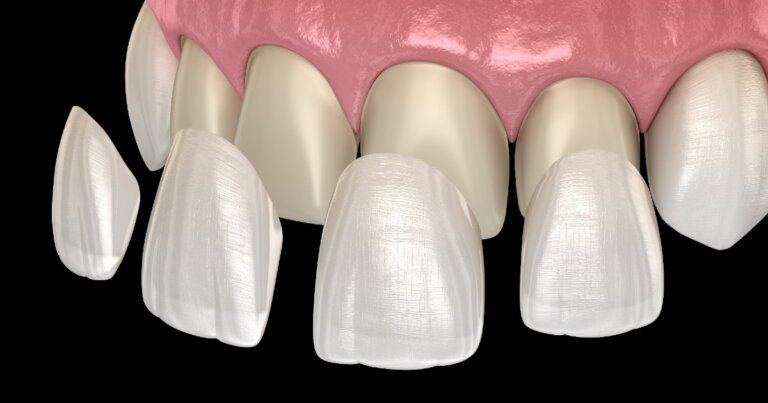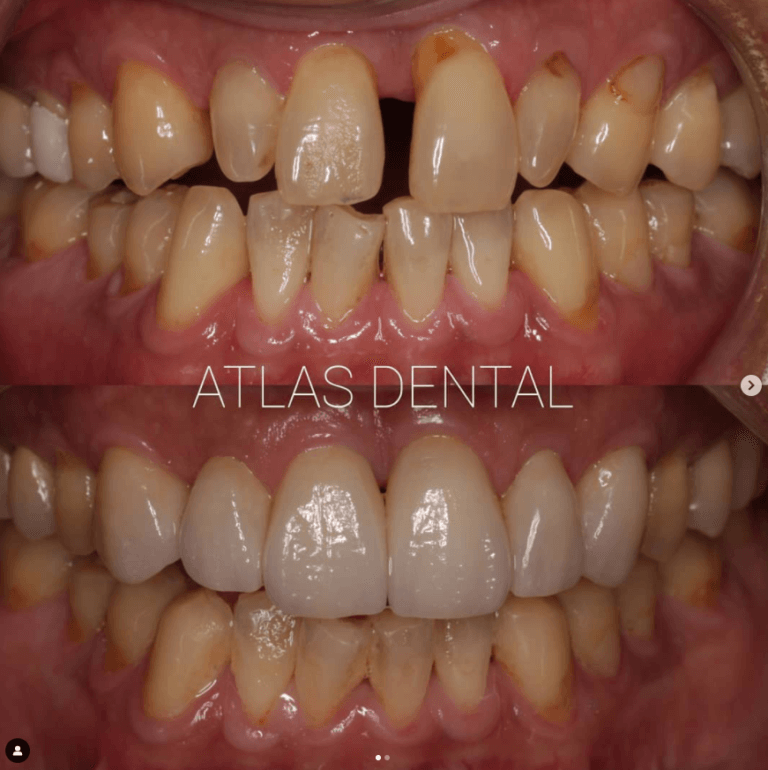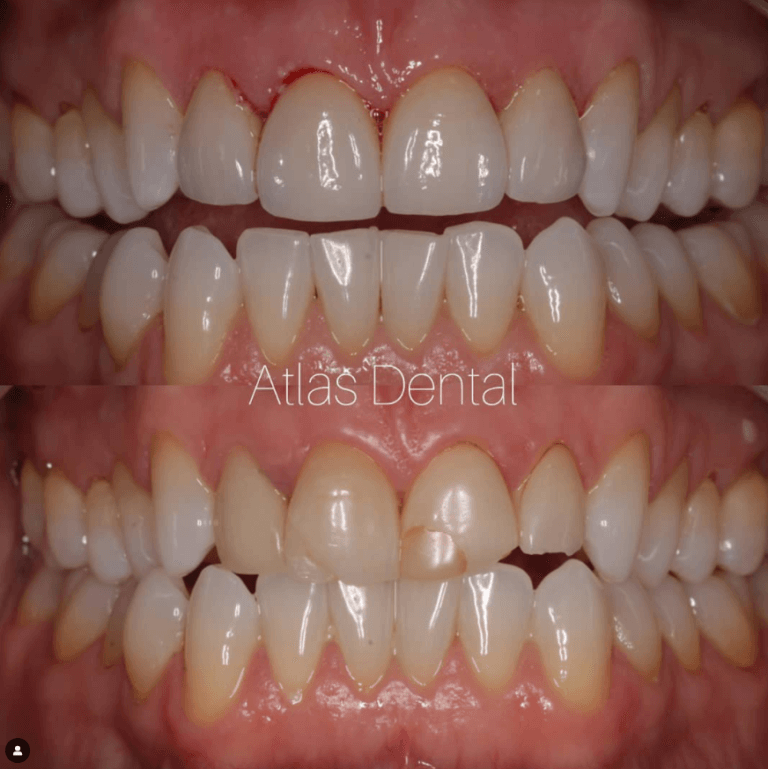Lithium Disilicate Veneers

What Are Lithium Disilicate Veneers?
Lithium Disilicate Veneers—commonly referred to as e.max veneers—is a type of dental porcelain veneer. Crafted from the high-strength ceramic material lithium disilicate, it is known for its strength, natural look, and versatility. Widely used in both cosmetic dentistry and restorative treatments, lithium disilicate veneers offer a minimally invasive option for those looking to enhance their smile in a lasting way.
Before deciding on whether Lithium Disilicate Veneers are right for you, there are some things you should know:
- Who Should Consider Lithium Disilicate Veneers?
- Benefits Of Lithium Disilicate Veneers
- Alternative Treatments To Lithium Disilicate Veneers
- How Much Does Lithium Disilicate Veneers Cost?
- Steps In The Lithium Disilicate Veneers Procedure
- Frequently Asked Questions About Lithium Disilicate Veneers
If you have any further questions about Lithium Disilicate Veneers or other dental services offered at Atlas Dental, please contact us.

Free phone consultation
Have questions about porcelain veneers? Schedule a free phone consultation with our cosmetic smile dentist in Toronto.

Book In person Consultation
If you are ready to get started with your dental veneer smile treatment, book an in-person appointment now

Emergency Veneer Repair
Chipped a porcelain veneer or has a porcelain veneer fallen off? Schedule an emergency veneer repair online.
Who Should Consider Lithium Disilicate Veneers?
Lithium Disilicate Veneers are ideal for those looking to address the following dental concerns:
- Stained or Discolored Teeth: Perfect for individuals whose teeth are discolored due to aging, medication, or lifestyle factors like smoking and coffee consumption.
- Chipped or Worn Teeth: Veneers cover chips and cracks, giving worn teeth a rejuvenated look.
- Misaligned or Uneven Teeth: Minor misalignments can often be corrected aesthetically with veneers.
- Gaps Between Teeth: Veneers can close small gaps, providing an even and harmonious smile.
- Uneven Tooth Surface: If your teeth appear dull or have rough textures, veneers provide a smooth, polished appearance.
A consultation with a qualified Toronto cosmetic dentist is essential to determine if Lithium Disilicate Veneers are the best solution for your smile makeover. If you have further questions about Lithium Disilicate Veneers, please contact us.
Benefits Of Lithium Disilicate Veneers
Lithium Disilicate Veneers come with numerous benefits, including:
- Exceptional Strength: Resistant to everyday wear, these veneers offer impressive longevity.
- Natural Aesthetics: Their translucency and texture closely mimic natural teeth, creating a seamless smile.
- Minimally Invasive: Requiring minimal tooth preparation, they help retain most of your natural tooth structure.
- Stain Resistance: E.max veneers are highly resistant to stains, making them a great choice for long-term brightness.
- Enhanced Confidence: A beautiful smile boosts self-esteem, helping you feel more confident in all areas of life.
It’s crucial to consult with a qualified dentist to understand the specific advantages and potential risks or limitations associated with your unique dental situation. If you have further questions about the benefit of Lithium Disilicate Veneers, please contact us.

Alternatives To Lithium Disilicate Veneers
Lithium Disilicate Veneers are just one option among many in cosmetic dentistry. Here are a few alternatives:
- Composite Veneers: These veneers are more affordable and can be applied in a single visit. However, they may not be as durable or natural-looking as lithium disilicate options.
- Feldspathic Porcelain Veneers: Known for their lifelike appearance, feldspathic veneers are a more traditional choice in ceramic veneers but may be less durable.
- Zirconia Veneers: Zirconia is a highly durable material, ideal for patients with strong bite forces. While strong, they may appear less translucent than lithium disilicate.
- Teeth Whitening: For those primarily concerned with discoloration, professional teeth whitening can be an effective and non-invasive alternative.
- Dental Crowns: A more comprehensive option that covers the entire tooth, crowns are recommended for teeth that are damaged or decayed.
Each alternative has its advantages and limitations, and a dental professional can guide individuals in making an informed decision that aligns with their goals and budget. If you have further questions about Lithium Disilicate Veneers, please contact us.
Cost of Dental Veneers
The cost for a porcelain veneer is $1349-1449 depending on the type of material. The cost of a direct composite veneer (dental bonding) is $500. The codes relevant to veneers in the Ontario Dental Association’s Suggested Fee Guide appear as follows:
Porcelain Veneers, Laboratory Processed
- 27602 – Veneers, Porcelain/Ceramic/Polymer Glass, Bonded: $1099 + Dental Lab Fee ($250-350)
Composite Veneers
- 23122 – Tooth Coloured Veneer Application – Non Prefabricated Direct Build-up – Bonded: $525
Dental veneers are considered a cosmetic service under all dental insurance plans and are usually not covered by your dental insurance. This means you are entirely responsible for the out of pocket costs of this type of smile makeover treatment. Please consult with your dentist about fees before going ahead with treatment.
For patients without dental insurance, Atlas Dental is pleased to offer dental financing through iFinance Dentalcard. Affordable payment plans start at 7.95% for terms of 6 months to 6 years. To learn more about Dentalcard dental treatment financing, follow this link.
Steps In The Lithium Disilicate Veneers Procedure
Here’s what to expect in the process:
- Initial Consultation: Discuss your goals and receive a full assessment of your dental health.
- Treatment Planning: Your dentist will create a plan, considering factors like veneer shade and shape.
- Tooth Preparation: A minimal amount of enamel is removed to ensure a proper fit.
- Impression Taking: An impression is sent to a lab to create custom veneers.
- Veneer Placement: Once ready, the veneers are bonded to your teeth.
- Bonding and Adjustment: The veneers are securely bonded, and any necessary adjustments are made.
After the completion of the Lithium Disilicate Veneers procedure, it is important to maintain good oral hygiene practices and attend regular dental check-ups and teeth cleanings to ensure the longevity of your veneers. If you have further questions about the Dental Veneer procedure, please contact us.

Frequently Asked Questions About Lithium Disilicate Veneers
- How long do lithium disilicate veneers last?
With proper care, they can last 10 to 15 years or longer.
- Can lithium disilicate veneers stain over time?
They are highly resistant to staining, but it’s advisable to limit consumption of staining agents like coffee and red wine.
- Are there any special care requirements for these veneers?
Maintain good oral hygiene, avoid biting on hard objects, and attend regular dental check-ups to ensure longevity. Please read our dental veneers post-insertion instructions.
- Is the procedure reversible?
No, as a small amount of enamel is removed during preparation, making the process irreversible.
Lithium disilicate veneers are an excellent choice for achieving a durable and natural-looking smile transformation. If you have further questions about Lithium Disilicate Veneers, please contact us.

